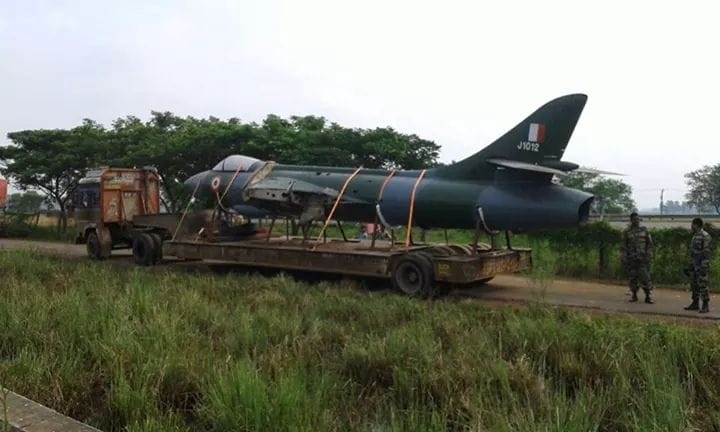Air transport in India began in the early 20th century, marking a significant milestone in the country’s transportation history. The journey of air transport in India encompasses a fascinating blend of technological advancements, socio-economic changes, and governmental initiatives. To understand the inception and evolution of air transport in India, we need to delve into its historical roots, the pioneering efforts of individuals and organizations, and the transformative impact it has had on the nation’s connectivity and development.
The seeds of air transport in India were sown during the colonial era, primarily driven by the exigencies of British imperial administration and the burgeoning demand for faster modes of communication and transportation. The first recorded flight in India took place in 1910 when a French pilot, Henri Pequet, flew a Humber biplane from Allahabad to Naini, covering a distance of about six miles. This historic flight, although a modest beginning, laid the foundation for the future development of aviation in the subcontinent.
Following this pioneering flight, the early 1920s witnessed sporadic aviation activities in India, characterized by aerial demonstrations, joyrides, and experimental flights conducted by foreign aviators. One notable event during this period was the formation of the Royal Air Force (RAF) in 1920, which played a crucial role in promoting aviation infrastructure and expertise in India. The establishment of flying clubs and airfields in cities like Karachi, Allahabad, and Delhi further bolstered the nascent aviation scene.
The true catalyst for the growth of air transport in India came with the establishment of commercial aviation services by private enterprises in the late 1920s and early 1930s. The Tata group, under the visionary leadership of J.R.D. Tata, played a seminal role in this regard. Tata Airlines, later rechristened Air India, commenced operations in 1932 with a rudimentary fleet of single-engine De Havilland Puss Moths, connecting Karachi with Mumbai via Ahmedabad.
The inaugural flight of Tata Airlines marked the dawn of scheduled air transport in India, offering passengers a faster and more comfortable alternative to existing modes of travel. Despite facing numerous challenges, including inadequate infrastructure, unpredictable weather conditions, and limited government support, Tata Airlines persevered and expanded its network to cover other prominent cities like Kolkata, Chennai, and Delhi.
The pre-independence era saw a gradual consolidation of air transport services in India, with other domestic players like Indian National Airways and Air Services of India entering the fray. However, the outbreak of World War II in 1939 brought about a paradigm shift in the Indian aviation landscape. The British government requisitioned existing air transport assets for military purposes, leading to the suspension of civilian aviation activities.
Post-independence, the Indian government recognized the strategic importance of air transport in fostering national integration, economic development, and international connectivity. The enactment of the Air Corporations Act in 1953 paved the way for the nationalization of civil aviation in India, resulting in the formation of two state-owned entities: Air India for international operations and Indian Airlines for domestic services.
The subsequent decades witnessed significant milestones in the evolution of air transport infrastructure and operations in India. The introduction of jet aircraft in the 1960s revolutionized air travel, reducing travel times and enhancing passenger comfort. Airports Authority of India (AAI), established in 1995, played a pivotal role in modernizing and expanding airport infrastructure across the country, catering to the growing demand for air travel.
The liberalization of India’s economy in the early 1990s heralded a new era of growth and competition in the aviation sector. The government’s decision to deregulate air transport and allow private airlines to operate domestic and international routes unleashed a wave of entrepreneurial activity. Airlines like Jet Airways, SpiceJet, and IndiGo emerged as formidable players in the Indian aviation market, offering competitive fares and innovative services.
The turn of the 21st century witnessed a boom in air travel fueled by rising disposable incomes, changing lifestyles, and increased business travel. India’s aviation industry experienced exponential growth, with passenger traffic registering double-digit growth rates year after year. The proliferation of low-cost carriers (LCCs) democratized air travel, making it accessible to a broader segment of the population.
Despite its remarkable progress, India’s aviation sector grappled with numerous challenges, including infrastructural bottlenecks, airspace congestion, regulatory hurdles, and financial instability. Safety concerns, operational inefficiencies, and fluctuating fuel prices posed additional challenges for airlines striving to maintain profitability and reliability.
In recent years, the Indian government has taken proactive measures to address these challenges and foster sustainable growth in the aviation sector. Initiatives such as the UDAN (Ude Desh ka Aam Nagrik) scheme aimed at enhancing regional connectivity, the development of greenfield airports, and the modernization of air traffic management systems reflect the government’s commitment to promoting air transport as a catalyst for economic development and social inclusion.
Air Transport in India: Evolution Timeline

| Year | Event |
|---|---|
| 1911 | First commercial flight carrying mail (Allahabad to Naini) |
| 1932 | Tata Airlines (later Air India) established |
| 1947 | Multiple private airlines operating in India |
| 1953 | Air transport nationalized, forming Air India and Indian Airlines |
| 1950s-1960s | Introduction of propeller aircraft (e.g., Viscount, Fokker) |
| 1970s-1980s | Arrival of jet aircraft (e.g., Boeing 737, Airbus A320) |
| 1990s | Liberalization of air travel policy, entry of private airlines |
| 2000s | Rapid growth of domestic air travel (low-cost carriers emerge) |
| 2024 | Air India historic order for new passenger aircraft (expected fleet growth) |
In conclusion, the journey of air transport in India has been nothing short of remarkable, spanning over a century of innovation, perseverance, and transformation. From humble beginnings with primitive aircraft to a thriving ecosystem of world-class airlines, airports, and ancillary services, India’s aviation sector has come a long way. As the country continues its march towards becoming a global economic powerhouse, air transport will undoubtedly play a pivotal role in shaping its future trajectory.